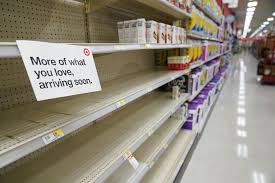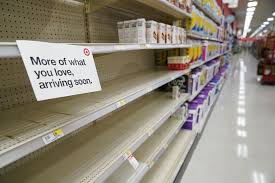
According to business leaders and policymakers at the World Economic Forum, a rising global food crisis is prompting countries to take protectionist measures, which are likely to exacerbate the problem and could lead to a wider trade war.
A government source told Reuters that India may restrict sugar exports for the first time in six years to prevent a spike in domestic prices, indicating the tightening of food supply and rising prices.
Meanwhile, Indonesia, the world's largest supplier of palm oil, will phase out a bulk cooking oil subsidy in favour of a price ceiling on raw materials for local refiners. continue reading
"It is a major issue, and frankly I think the problem is even bigger ahead of us than it is behind us," Gita Gopinath, first deputy managing director of the International Monetary Fund, told Reuters of rising food security concerns.
At Davos, protectionism is looming large, prompting calls for urgent talks to avoid a full-fledged trade war.
"It's very important for the leaders of the world to sit at the table with calm and talk about how we will manage trade and food and investment," Jay Collins, vice chairman of banking, capital markets and advisory at Citigroup told the Reuters Global Markets Forum in Davos.
"There's a lot of conversations actually with the G7 happening here in the past 48 hours," Collins said.
Residents in Sub-Saharan African countries, for example, spend 40 per cent of their income on food, according to Gopinath. Price increases have led to government hoarding as well as a "major impact to the cost of living."
"We have about 20 plus countries that have put restrictions on exports of food and the fertilizers, and that can only compound the problem and make things worse," she said on Monday.
Russia's invasion of Ukraine, which Moscow calls as a "special military operation," has brought an already-brewing crisis to a head.
"We were facing an extraordinary food crisis before Ukraine, food costs, commodity prices, shipping costs were already doubling, tripling, quadrupling," David Beasley, Executive Director for the United Nations World Food Programme, said.
According to Beasley, the number of people "marching to famine" has increased from 80 million to 276 million in the last four to five years.
"To keep the ports closed as the harvest season is now coming in Ukraine in July and August, it means a declaration of war on global food supply," he said.
Many businesses at Davos have been in contact about how they might help with the food issue, according to Beasley.
"Agriculture has to be part of the solution to climate change and has to tackle food security," Erik Fyrwald, CEO of Syngenta Group, said during a panel discussion on Monday.
Syngenta has demonstration farms, according to Fyrwald, that demonstrate how farming methods like not tilling the soil and covering crops in the winter to minimise soil erosion are better for soil, food security, and climate change.
Gilberto Tomazoni, CEO of JBS SA, the world's largest meat processor, told a WEF panel on Tuesday that tackling waste is another possible answer to the food issue.
"Humanity is faced with two big emergencies at the same time, we need to face climate change and we need to produce more to feed a growing population," Tomazoni said.
"And the way we are producing today is not sustainable. This is our big, big challenge. Food waste, we need to take on this situation," Tomazoni added.
(Source:www.reuters.com)
A government source told Reuters that India may restrict sugar exports for the first time in six years to prevent a spike in domestic prices, indicating the tightening of food supply and rising prices.
Meanwhile, Indonesia, the world's largest supplier of palm oil, will phase out a bulk cooking oil subsidy in favour of a price ceiling on raw materials for local refiners. continue reading
"It is a major issue, and frankly I think the problem is even bigger ahead of us than it is behind us," Gita Gopinath, first deputy managing director of the International Monetary Fund, told Reuters of rising food security concerns.
At Davos, protectionism is looming large, prompting calls for urgent talks to avoid a full-fledged trade war.
"It's very important for the leaders of the world to sit at the table with calm and talk about how we will manage trade and food and investment," Jay Collins, vice chairman of banking, capital markets and advisory at Citigroup told the Reuters Global Markets Forum in Davos.
"There's a lot of conversations actually with the G7 happening here in the past 48 hours," Collins said.
Residents in Sub-Saharan African countries, for example, spend 40 per cent of their income on food, according to Gopinath. Price increases have led to government hoarding as well as a "major impact to the cost of living."
"We have about 20 plus countries that have put restrictions on exports of food and the fertilizers, and that can only compound the problem and make things worse," she said on Monday.
Russia's invasion of Ukraine, which Moscow calls as a "special military operation," has brought an already-brewing crisis to a head.
"We were facing an extraordinary food crisis before Ukraine, food costs, commodity prices, shipping costs were already doubling, tripling, quadrupling," David Beasley, Executive Director for the United Nations World Food Programme, said.
According to Beasley, the number of people "marching to famine" has increased from 80 million to 276 million in the last four to five years.
"To keep the ports closed as the harvest season is now coming in Ukraine in July and August, it means a declaration of war on global food supply," he said.
Many businesses at Davos have been in contact about how they might help with the food issue, according to Beasley.
"Agriculture has to be part of the solution to climate change and has to tackle food security," Erik Fyrwald, CEO of Syngenta Group, said during a panel discussion on Monday.
Syngenta has demonstration farms, according to Fyrwald, that demonstrate how farming methods like not tilling the soil and covering crops in the winter to minimise soil erosion are better for soil, food security, and climate change.
Gilberto Tomazoni, CEO of JBS SA, the world's largest meat processor, told a WEF panel on Tuesday that tackling waste is another possible answer to the food issue.
"Humanity is faced with two big emergencies at the same time, we need to face climate change and we need to produce more to feed a growing population," Tomazoni said.
"And the way we are producing today is not sustainable. This is our big, big challenge. Food waste, we need to take on this situation," Tomazoni added.
(Source:www.reuters.com)





